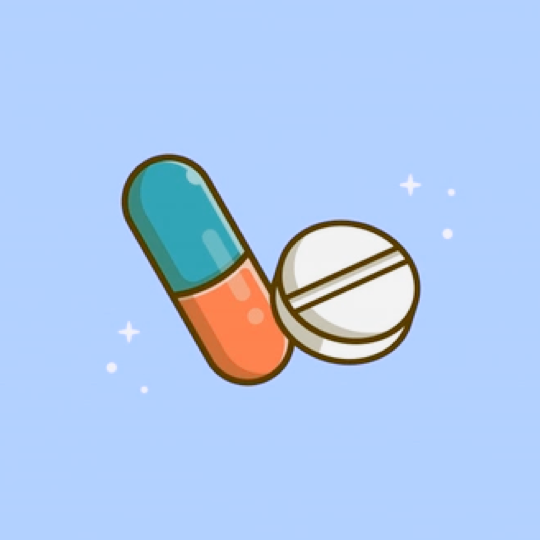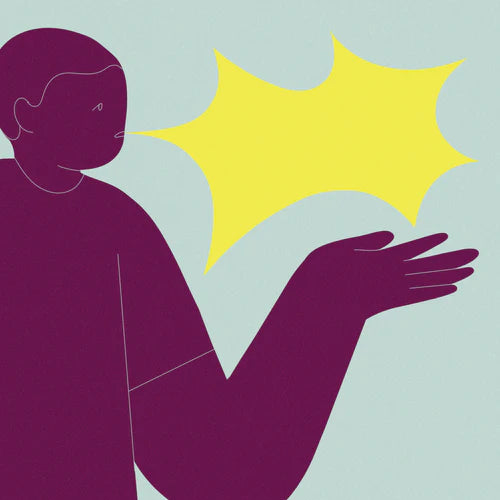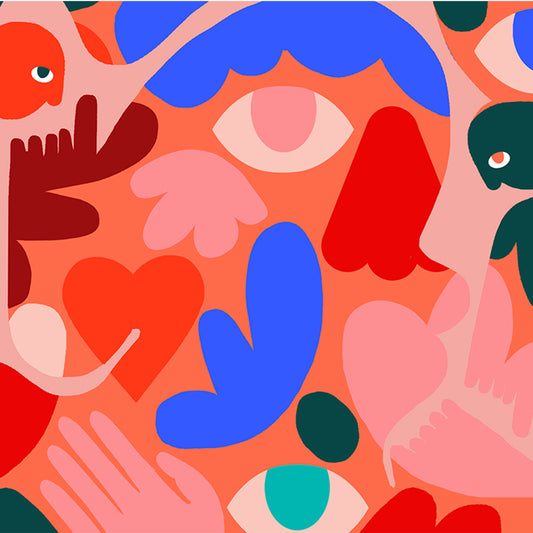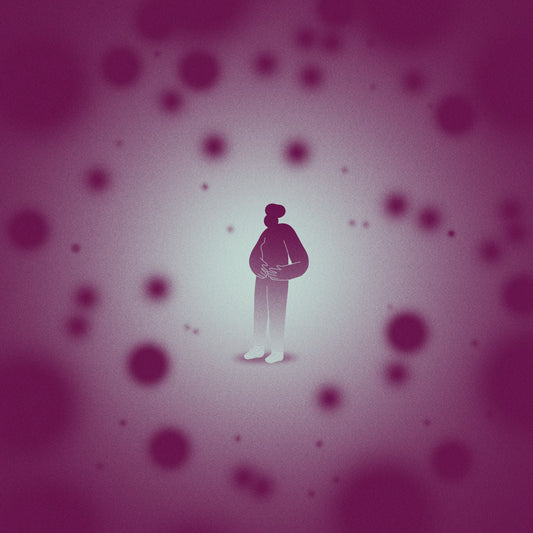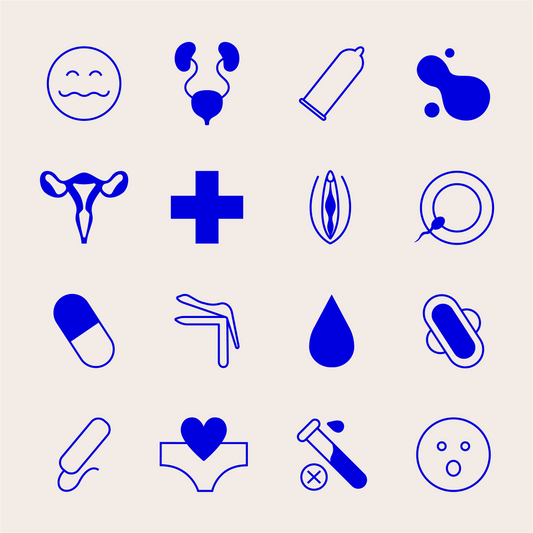Alexandra Fine, Credentialed Sexologist, M. Psych | Written by Dame
Defining Low Libido | One Major Suspect | Medical Issues | Depression, Stress and Anxiety | Mental Health-Related “Female” Libido Issues | Libido Pills For Everyone Else | A Libido Pill May Actually Help
“When you find the right person, you’ll know it’s the right time.”
That’s good advice, and it’s often what people hear when they ask a parent or confidante about having sex for the first time.
Some may run into a different problem, though: even if they know it’s the right person – they just don’t have enough sexual desire to do anything about it.
That issue is called “low libido,” or more commonly, low sex drive.
There are lots of libido pills that promise to boost sexual desire. But how do they work? And more importantly, do they work?
Let’s find out.
Defining Low Libido
The problem that most people call “low libido” shouldn’t be confused with having a naturally-low sex drive. Since everyone is different, both physically and emotionally, everyone’s innate need for sexual activity is different, too.
In reality, having a low libido is only a problem when a person’s sex drive is lower than it used to be, or when it causes relationship difficulties because a partner’s normal desire for sex is much higher.
Low sex drive isn’t usually what causes most sexual performance issues, either. A penis-haver who wants sex but can’t perform because of erectile dysfunction, for example, isn’t suffering from low libido. Of course, there are pills that can help with that problem – but Viagra and Cialis aren’t libido pills. They’re vasodilators designed to widen blood vessels, which increases blood flow to the genitals. Viagra can help penis owners have sex, but won’t necessarily make them want to have sex.
We should mention that there’s one exception: when another sexual dysfunction issue causes such emotional distress that a person simply gives up on having sex. In that case, medications or supplements that increase blood flow and restore sexual function may actually boost a patient’s self-image, and therefore their sexual desire, as well.
However, our primary goal is to look at low libido that exists for other reasons, and whether “libido pills” can make a different. So let’s talk about what causes low libido.
One Major Suspect: Hormones
We all have so-called sex hormones in our bodies, in varying amounts. The hormones that have the greatest effect on sexual function and desire are testosterone, estrogen and progesterone – but they work very differently in those with vulvas and those with penises.
Hormones and Penis-Havers
You can’t read a “men’s magazine” or spend much time online without hearing about “Low-T.” That, of course, stands for low testosterone. And companies that make big bucks selling “male supplements” try to blame almost every sex-related issue on it.
Testosterone is responsible for the development of sex organs and sexual development in penis owners, as well as their sex drive. Since they normally go through puberty in their teenage years, that’s when their bodies must produce large amounts of the hormone. So testosterone levels are at their highest when penis-havers are young.
Once they reach their 30s, however, those levels begin to drop at about 1-2% per year. And with less testosterone in their bodies, people with penises experience a completely normal, gradual decline in libido as they age. To put it in simple terms, your libido naturally decreases as you get older.
Can so-called testosterone booster supplements help restore that “get-up-and-go that has got-up-and-went?” Apparently not. A meta-analysis of 65 years’ worth of studies concludes that there’s no evidence that the products have any measurable effect on desire, or on mental or physical function. Experts say that exercise, a healthy diet with enough vitamins and minerals, and getting more sleep are the best ways to maximize the body’s testosterone production.
There is one treatment that can help low testosterone levels. However, it’s usually only prescribed for patients diagnosed with hypogonadism, which is abnormally low testosterone levels in younger penis-havers. It can be caused by a number of chronic medical issues (including high blood pressure, cardiovascular disease, obesity, diabetes, sleep apnea and HIV/AIDS), pituitary or thyroid gland issues, testicular injuries or some medications.
In those cases, medical professionals may prescribe lifelong testosterone replacement therapy, which can restore libido in some patients. It can also cause some nasty side effects, so some doctors don’t recommend it and the Endocrine Society recommends extreme caution in prescribing it.
Bottom line: there’s no evidence that any “libido pills” can help with sex drive problems caused by low testosterone levels.
Hormones and Vulva-Havers
The sex hormone that has the most impact on libido, in those with vulvas, is estrogen. And they’re reminded of that fact every month until menopause, because the menstrual cycle causes monthly increases and decreases in both estrogen and progesterone.
Estrogen levels rise just before ovulation, because estrogen helps the uterus prepare for the possibility of an implanted, fertilized egg. The surge in estrogen also causes sex drive to increase during that time of the month. At the end of the cycle, estrogen levels fall while progesterone levels rise; high progesterone causes the all-too-familiar symptoms of PMS, which can be arousal-killers all on their own.
So vulva owners, by design, will experience fluctuations in libido on a monthly basis and there are no libido pills which will prevent it. What about birth control pills? Nope; most will actually hurt rather than help. Hormonal contraception methods “smooth out” the menstrual cycle, so the surge of estrogen that boosts sex drive never takes place.
Once menopause arrives, estrogen production drops dramatically. That usually leads to physical issues like vaginal dryness and hot flashes – and a noticeable, natural decrease in libido.
Just as with penis owners and testosterone, there are some health issues that can cause vulva owners’ bodies to produce unnaturally-low levels of estrogen. Ovarian failure, pituitary gland issues, kidney disease, eating disorders or even too much exercise can have a major impact on estrogen production, and a corresponding problem with low libido.
But unlike low testosterone in penis-havers, there are pills – which you can think of libido pills if you’d like – which can supply vulva-havers with additional estrogen. Estrogen hormone therapy is more often prescribed (by doctors specializing in gynecology or endocrinology) for those going through menopause, but it’s also used to help pre-menopausal patients with low estrogen levels. Not only can these pills ease hot flashes and increase vaginal lubrication, but they can provide a libido boost when a low sex drive is caused by insufficient levels of estrogen.
The pills approved by the Food and Drug Administration (FDA) for this purpose include Estrace, Yuvafem, Estratab and Premarin, which contain various forms of estrogen including estradiol. These are all prescription medications and aren’t available over-the-counter. Estrogen therapy can also be provided via gels, patches, creams and sprays.
Bottom line: estrogen pills aren’t a cure-all answer for low libido in those with vulvas, but they can perform as a “libido pill” for some whose sex drive has dropped because of low estrogen levels.
Low Libido Caused By Other Medical Issues
People suffering with a variety of health problems often find that their sex drive has declined or vanished.
Most often, chronic illnesses or diseases that sap the patient’s strength or energy are to blame. Chronic fatigue syndrome, anemia, fibromyalgia and cancer are the most obvious. But diabetes (which may impede blood flow by damaging the vascular system), diseases of the liver, kidney or heart disease, HIV/AIDS, and even arthritis can indirectly lead to a loss of libido.
There’s no miracle libido supplement pill that can help those patients. Instead, they should consult with the health care professionals treating those other conditions, to see if there’s any safe medication that may help compensate for their decreased sexual desire.
Speaking of medications, some can be a silent cause of low libido.
Topping the list are antidepressants, particularly those in the class called SSRIs, which are known to cause serious sexual side effects. Penis-havers are particularly likely to be affected by these medications (including Lexapro and Prozac); SSRI stands for “selective serotonin reuptake inhibitors,” and serotonin is one of the body’s neurotransmitters that regulates sexual drive and function.
Other prescription drugs that have been linked to lower sex drive are beta blockers (like Inderal and Lopressor) and diuretics (water pills like lasix), both used to treat high blood pressure; Tagamet, used to treat acid indigestion; some drugs prescribed for epilepsy and convulsions; and chemotherapy medications.
For people on these meds, the best approach to treating low libido is asking healthcare professionals if lower doses are a possibility, or if there are suitable substitutes that can be prescribed.
Bottom line: low sex drive caused by disease or medication can’t be “overridden” with another pill. Altering treatments for the underlying disease or condition is the most likely way to boost libido in these cases.
Depression, Stress and Anxiety
Patients suffering with serious depression may find it difficult just to get out of bed, so it shouldn’t be surprising that their sex drive can take a major hit as well. It also makes common sense that anxiety and stress can make you more likely to experience sexual problems; when you’re worried about problems in a relationship, problems at work or money issues, it can be difficult to focus on your sex life.
We don’t have to rely on common sense to know that all of these mental health issues can cause low libido. There’s lots of research showing that it happens even more often than you might expect.
Depression and anxiety are often treated with a combination of talk therapy and medication – but the fact that many of the commonly-used drugs can also cause low sex drive makes treatment more complicated. For that reason, psychotherapy is usually the first tool in the clinical tool chest. If medications are necessary, care must be taken by mental health professionals to prescribe drugs (like Wellbutrin or Buspar) that won’t make the sexual issues any worse.
While you might consider those latter medications “libido pills,” there are none that can help low libido related to simple stress. The permanent solution is to discover or acknowledge the source(s) of stress and work to relieve them. That may pose difficult challenges. Some stressors may require honest discussions with partners or family, followed by the work necessary to resolve issues that exist (or consultation with relationship counselors or sex therapists). Others may require major job or lifestyle changes, in order to remove obstacles to a less stressful life.
Bottom line: antidepressants or anti-anxiety medications may help resolve low libido problems in some patients suffering with mental health issues, but there’s a real chance that the wrong “libido pill” could exacerbate the problem.
Mental Health-Related “Female” Libido Issues
We’ve finally reached a category in which there really are medications that could be called “libido pills.”
Until recently, there were two recognized mental health issues that cause low sex drive or related sexual health issues in vulva-havers. One was called hypoactive sexual desire disorder (HSSD), characterized by the lack of sexual fantasies and an extremely low libido. The other, female sexual aversion disorder (SAD or FSAD), involved an aversion to any sort of genital sexual contact. The mental health community has now combined the two disorders into one: FSAID, which stands for female sexual interest/arousal disorders.
The accepted treatment for FSAID? Medications which have been approved by the FDA.
The most commonly prescribed drug is bremelanotide, which is sold under the brand name Vyleesi. To be honest, it’s a self-administered libido injection rather than a libido pill, but when the medication is taken right before sexual activity it provides a long-lasting boost in sexual arousal and desire. Scientists aren’t exactly sure why Vyleesi works, but it does for many patients.
The second med is called Addyi (flibanserin), which is taken in pill form once per day. When it was introduced seven years ago there were high hopes for Addyi (the company making it called it “female Viagra”), but it hasn’t been as effective as Vyleesi and is less-commonly prescribed.
So far, treatment of FSAID is the only approved use for these “libido enhancers,” and they’re only safe for those who are pre-menopausal. If you haven’t been diagnosed with FSAID, though, you may be able to find a doctor who will prescribe them off-label.
Bottom line: there really are libido enhancement pills (or injections) for a very specific diagnosis of low libido. So far they’re only sold by prescription for those diagnosed with FSAID, and not widely available to vulva-havers who simply want a libido booster.
Libido Pills For Everyone Else: Do They Exist? Do They Work?
Some of the people who don’t have as much sexual energy or desire as they used to – may only have to look in the mirror to discover a possible reason. Lifestyle issues like excessive drinking, smoking and drug use have all been linked to decreases in sex drive, as has obesity. Behavioral changes might be a more reasonable approach than a search for magic pills.
Even so, many still turn to the so-called libido enhancement pills which are widely available online and in drug stores. They’re actually labeled as dietary supplements for a very good reason: that’s how manufacturers can get around FDA regulation of over-the-counter medications.
You’ll often see ingredients like L-arginine, ginseng and ginkgo biloba in these “sexual enhancement” products. L-arginine makes some sense since it’s an amino acid which turns into nitric oxide in the body. And nitric acid can help increase blood flow, particularly in penis-havers. One particularly interesting meta-review also found that supplements containing L-arginine showed promise for the treatment of FSAID in vulva-havers.
Evidence for the use of ginseng and ginkgo biloba does exist but is somewhat less convincing, with some studies suggesting that their apparent positive effects may have been due to the placebo effect. Both have been reputed throughout history to be potent aphrodisiacs, however.
Other natural herbal remedies used for sexual health and wellness purposes, like maca root, rhodiola and tribulus terrestris, are also used by themselves or as ingredients in libido pills. Maca has shown promise as a possible treatment for low sexual desire; rhodiola may help ease premature ejaculation issues experienced by penis-havers, and studies indicate that tribulus terrestris may be able to boost libido while also increasing sexual satisfaction.
It would be easy to look at those results and say “what harm is there in trying one of those libido pills?” Unfortunately, there can be good reasons not to try some of them. There are purported sexual enhancement products that also contain ingredients like yohimbe and Spanish fly, each of which has been proven to have potentially serious side effects.
Bottom line: the many over-the-counter libido pills that promise the world may not deliver on all of their promises, but some of their ingredients may provide some benefits. Just be sure to check the ingredient lists on their labels very carefully.
A Libido Pill May Actually Help – But Not For The Reasons You Think
You’ll often hear a cliché that’s largely true: the mind is the most important sex organ. If you need proof, here’s one last study to consider.
Researchers in Germany gathered a group of volunteers, telling them they were testing a sexual enhancement pill. In reality, most of them received just a placebo – but almost all of them reported improvements in their desire and performance anyway.
Bottom line: if you’re taking a libido pill and expecting it to boost your sex drive, it may – even if the pill’s ingredients really don’t anything to affect sexual desire. Just first be sure the pill doesn’t contain anything that could threaten your health and well-being.
